Retire While You Work® Podcast
Join us as we discuss various topics to help you find the path to viewing money as a means to the true currency, TIME, and learn how to build more memories and experiences.
View All EpisodesJoin us as we discuss various topics to help you find the path to viewing money as a means to the true currency, TIME, and learn how to build more memories and experiences.
View All Episodes
What if you could do what you're passionate about and achieve a work-life balance? What if you were relieved of the pressure to have some massive amount saved?
Learn More
You have just switched jobs and you are running through the checklist of house cleaning items that comes with doing so. If your previous employer offered a 401k and you participated in the plan, you will inevitably come to the question of, “What should I do with that thing?” If you are not already working with a trusted financial planner, you may ask around to some co-workers or family members for advice. Some of the advice you my receive, could be the following: “just leave it where it’s at in your old employers plan”, “transfer the funds into your new jobs retirement plan”, “roll over the account to an IRA”, or “cash it out” (not what you would want to do). In the end, it is your money and you can do with it as you please. However, we feel it is our job to help you make the best-informed decision to help set you up for future financial success in retirement.
Of the advice you may have received above, only one choice would be completely detrimental to your retirement plan. That choice would be to cash it out. By doing so, you lose all tax deferred growth possibilities associated with the retirement plan, and you would owe ordinary income tax on the entire amount. Also, if you are under 59.5 years old you would also be penalized 10% on the entire distribution.
With the remaining advice, none of them will hurt your overall retirement plan. By this I mean that they each will allow you to maintain tax deferred growth and not bring any unwanted penalties or taxes upon yourself. However, there is one option that we believe allows the most freedom when it comes to retirement planning.
Why you should rollover your 401k from your previous employer.
If you choose to leave your 401k in the previous employer’s plan or you choose to move it to your new employer’s plan, you have not made the wrong decision. However, you have limited some of the freedom you can have by rolling it over to and IRA in your name.
Investment Freedom:
The biggest advantage that comes from rolling over your 401k to and IRA is the freedom of investment options. With the 401k you are limited to the funds within the plan, which sometimes is no more than 15-20 funds. With an IRA you have access to thousands of mutual funds, ETF’s, or even stocks if you so choose.
Consolidation:
If you already have an IRA open, you can simply just move the 401k you’re your existing IRA. This helps keeping track of things much easier. This may not seem like much, but when you only have to keep track of one account, versus, two or three it just helps to simplify things and allow you to focus on saving for retirement.
Control:
With 401k plans, some of what you can do is governed by the plan document, such as: investments available, how you can withdraw the money, and advice available to you. When your money is in an IRA, you are in complete control as we have discussed throughout this article. Also, if your money is in an IRA and you are working with a trusted financial planner, you have available to you someone who can provide counsel on investment decisions, whereas 401k companies are typically not at liberty to help provide advice.
For the vast majority of the population, 401k plans are the absolute best way to save for retirement. Especially, because most employers provide a company match. However, when you leave that job, taking control of your 401k assets and moving them into an IRA can help to make sure your retirement plan is right where it needs to be.
By: Myles Zueger, Senior Relationship Manager
The foregoing information has been obtained from sources considered to be reliable, but we do not guarantee that it is accurate or complete, it is not a statement of all available data necessary for making an investment decision, and it does not constitute a recommendation. Any opinions are those of Myles Zueger, and not necessarily those of Raymond James. Investing involves risk and you may incur a profit or loss regardless of strategy selected. 401(k) plans are long-term retirement savings vehicles. Withdrawal of pre-tax contributions and/or earnings will be subject to ordinary income tax and, if taken prior to age 59 1/2, may be subject to a 10% federal tax penalty. Matching contributions from your employer may be subject to a vesting schedule. Rollovers to an IRA may involve fees, and/or potential termination fees. Be sure to consider all of your available options (as listed above) and the applicable fees and features of each option before moving your retirement assets. Contributions to a traditional IRA may be tax-deductible depending on the taxpayer’s income, tax-filing status, and other factors. Withdrawal of pre-tax contributions and/or earnings will be subject to ordinary income tax and, if taken prior to age 59 1/2, may be subject to a 10% federal tax penalty.


Adams Wealth Partners, LLC is not a registered broker/dealer and is independent of Raymond James Financial Services. Investment advisory services offered through Raymond James Financial Services Advisors, Inc. Securities offered through Raymond James Financial Services, Inc., member FINRA/SIPC
Neither Raymond James Financial Services nor any Raymond James Financial Advisor renders advice on tax issues, these matters should be discussed with the appropriate professional.
Links are being provided for information purposes only. Raymond James is not affiliated with and does not endorse, authorize, or sponsor any of the listed websites or their respective sponsors. Raymond James is not responsible for the content of any website or the collection or use of information regarding any website's users and/or members.
The running stock ticker is not a recommendation to buy or sell stocks of the companies pictured.

Securities offered through Raymond James Financial Services, Inc., member FINRA/SIPC, marketed as Adams Wealth Partners. Investment advisory services offered through Raymond James Financial Services Advisors, Inc.Adams Wealth Partners is separately owned and operated and not independently registered as a broker-dealer or investment adviser.
Certified Financial Planner Board of Standards Inc. owns the certification marks CFP®, CERTIFIED FINANCIAL PLANNER™, CFP® (with plaque design) and CFP® (with flame design) in the U.S., which it awards to individuals who successfully complete CFP Board's initial and ongoing certification requirements. CFP® holders at Adams Wealth Partners, LLC are: David Adams, Myles Zueger, Carson Odom, and Spencer Provow
CPA holders at Adams Wealth Partners, LLC are: David Adams, Carson Odom, and Christine Kinsley
Please note that all archived content is for informational purposes only. Investment decisions should not be based on the content provided herein. For the most up-to- date statistical information and analysis, please contact your financial professional.
Raymond James financial advisors may only conduct business with residents of the states and/or jurisdictions for which they are properly registered. Therefore, a response to a request for information may be delayed. Please note that not all of the investments and services mentioned are available in every state. Investors outside of the United States are subject to securities and tax regulations within their applicable jurisdictions that are not addressed on this site. Contact your local Raymond James office for information and availability.

The 2024 Forbes ranking of America’s Top Wealth Management Teams Best-In-State, developed by SHOOK Research, is based on an algorithm of qualitative criteria, mostly gained through telephone and in-person due diligence interviews, and quantitative data. This ranking is based upon the period from 3/31/2022 to 3/31/2023 and was released on 01/09/2024. Advisor teams that are considered must have one advisor with a minimum of seven years of experience, have been in existence as a team for at least one year, have at least 5 team members, and have been nominated by their firm. The algorithm weights factors like revenue trends, assets under management, compliance records, industry experience and those that encompass best practices in their practices and approach to working with clients. Portfolio performance is not a criteria due to varying client objectives and lack of audited data. Out of approximately 10,100 team nominations, 4,100 advisor teams received the award based on thresholds. This ranking is not indicative of an advisor's future performance, is not an endorsement, and may not be representative of individual clients' experience. Neither Raymond James nor any of its Financial Advisors or RIA firms pay a fee in exchange for this award/rating. Raymond James is not affiliated with Forbes or Shook Research, LLC. Please see https://www.forbes.com/lists/wealth-management-teams-best-in-state/ for more info.
Barron’s Top 1,200 Financial Advisors 2023, is based on the period from 09/30/2021 - 09/30/2022 and was released on 03/15/2023. 5630 nominations were received and 1,200 won. Neither Raymond James nor any of its advisors pay a fee in exchange for this award. More:https://www.raymondjames.com/award-disclosures/#2023-barrons-top-1200
Please note that all archived content is for informational purposes only. Investment decisions should not be based on the content provided herein. For the most up-to- date statistical information and analysis, please contact your financial professional.
Raymond James is not affiliation and does not endorse the above-mentioned organizations.
Nashville Wealth Management & Financial Advisors | David Adams CPA, CFP® | Copyright © 2024 | Privacy Notice | Legal Disclosure
